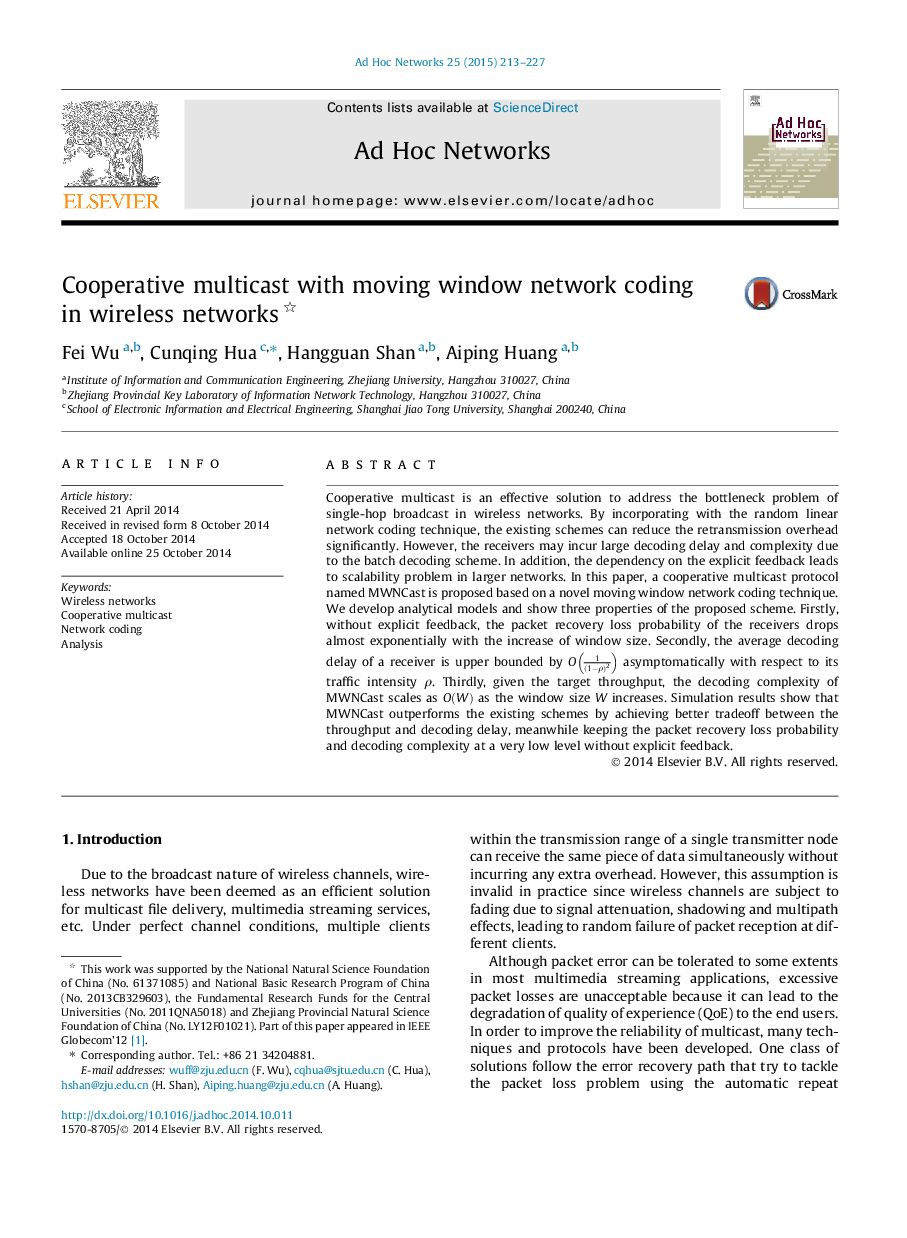| Article ID | Journal | Published Year | Pages | File Type |
|---|---|---|---|---|
| 445401 | Ad Hoc Networks | 2015 | 15 Pages |
Cooperative multicast is an effective solution to address the bottleneck problem of single-hop broadcast in wireless networks. By incorporating with the random linear network coding technique, the existing schemes can reduce the retransmission overhead significantly. However, the receivers may incur large decoding delay and complexity due to the batch decoding scheme. In addition, the dependency on the explicit feedback leads to scalability problem in larger networks. In this paper, a cooperative multicast protocol named MWNCast is proposed based on a novel moving window network coding technique. We develop analytical models and show three properties of the proposed scheme. Firstly, without explicit feedback, the packet recovery loss probability of the receivers drops almost exponentially with the increase of window size. Secondly, the average decoding delay of a receiver is upper bounded by O1(1-ρ)2 asymptomatically with respect to its traffic intensity ρ . Thirdly, given the target throughput, the decoding complexity of MWNCast scales as O(W)O(W) as the window size W increases. Simulation results show that MWNCast outperforms the existing schemes by achieving better tradeoff between the throughput and decoding delay, meanwhile keeping the packet recovery loss probability and decoding complexity at a very low level without explicit feedback.
